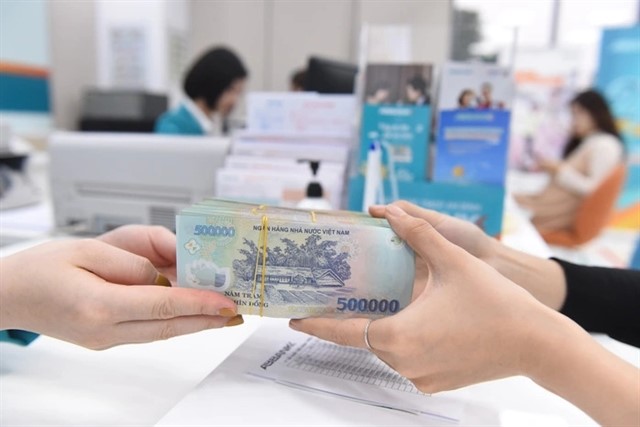Deposit interest rates in Việt Nam, which have plunged since early-2023, are expected to rebound by 50-100 basis points by the end of the year, but that magnitude of increase is not likely to have a major impact on the stock market, according to Michael Kokalari, a chartered financial analyst and chief economist at VinaCapital.

Deposit interest rates in Việt Nam, which have plunged since early-2023, are expected to rebound by 50-100 basis points by the end of the year, but that magnitude of increase is not likely to have a major impact on the stock market, according to Michael Kokalari, a chartered financial analyst and chief economist at VinaCapital.
In his latest report on gold, the US dollar and interest rates on April 26, he said the Vietnamese đồng (VNĐ) has depreciated 4.5 per cent from the beginning of the year to a level at which the State Bank of Vietnam has in the past taken concrete action to support the đồng. The value of the Vietnamese đồng has not depreciated by more than 3.5 per cent in any calendar year since 2015, even in years when the currencies of Việt Nam’s regional emerging market peers suffered much larger depreciations.
He attributed the drop in the value of the đồng to a few factors, including the unexpected strength of the US dollar, which is up nearly 5 per cent year to date on the DXY Index. In addition, gold prices have risen by as much as 16 per cent YTD (and by 30 per cent since late-2022), which is also putting pressure on the USD/VNĐ exchange rate because Vietnamese investors are enthusiastic buyers of gold, and their gold purchases ultimately entail the sale of đồng and purchase of US dollars.
He stressed that this is an unusual situation because higher US interest rates support the value of the US dollar, but typically lead to lower gold prices by increasing savers’ “opportunity costs” of holding gold in lieu of depositing the money in the bank.
“We do not believe interest rates need to increase by much more than 100 basis points to support the USD/VNĐ exchange rate because Việt Nam’s trade surplus widened from 6 per cent of GDP in 2023 to 8 per cent of GDP in Q1 2024, and FDI disbursements are robust at around 5 per cent of Q1 GDP. Also, Vietnamese policymakers are balancing between stabilising the value of the đồng and fostering economic growth, which means that interest rates need to be high enough to support the đồng, but not so high that tight monetary policy impedes GDP growth,” Kokalari said.
He emphasised, “that magnitude of increase is not likely to have a major impact on the stock market, but we expect purchasers of real estate to act quickly to lock in the current low level of mortgage rates, adding fuel to Việt Nam’s nascent real estate rebound.”
He explained that higher deposit rates improve the attractiveness of putting money in the bank rather than in the stock market. Higher deposit rates also lead to high lending rates/higher costs of capital for companies, which depresses corporate profits. Consequently, higher interest rates are usually bad for the stock market.
“However, the current depreciation pressure on the Vietnamese đồng – which is putting upward pressure on VNĐ interest rates – is primarily attributable to US economic strength, and the strong US economy is boosting Việt Nam’s exports and GDP growth. For that reason, we are not overly concerned that a 100bp increase in deposit rates in Việt Nam will have a major impact on the country’s economy, on earnings growth (we still expect circa 20 per cent earnings growth in 2024), and/or on the stock market this year,” he added.
Furthermore, the imminent rise in Vietnamese interest rates is actually supporting the nascent recovery in the real estate market by prompting potential home buyers to purchase properties promptly in order to lock-in the current level of borrowing rates. Most mortgages in Việt Nam are 15-year floating rate loans, but it is currently possible to lock in interest rates as low as 6 per cent for the first two years of the loan (or 7 per cent for the first three years), and most prospective home buyers do not expect those low interest rates to last much longer.
He also noted the growing recognition that “higher for longer” US interest rates may currently be bolstering – rather than dampening – the US economy. This paradox stems from the fact that savers in the US (especially “Baby Boomers”) are earning significant interest income on their savings for the first time in years, and they are spending that windfall income. Consequently, higher US interest rates are a double-edge sword for Việt Nam; depreciation pressures on the đồng are putting upward pressure on Vietnamese interest rates, but the strong US economy is also driving a recovery in Việt Nam’s exports to the US from a 21 per cent year-on-year drop in Q1 2023 to a 26 per cent surge in Q1 2024. — VNS





